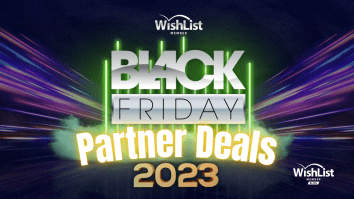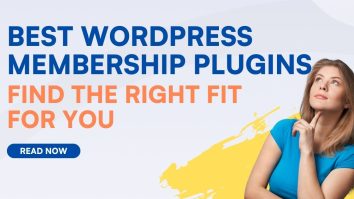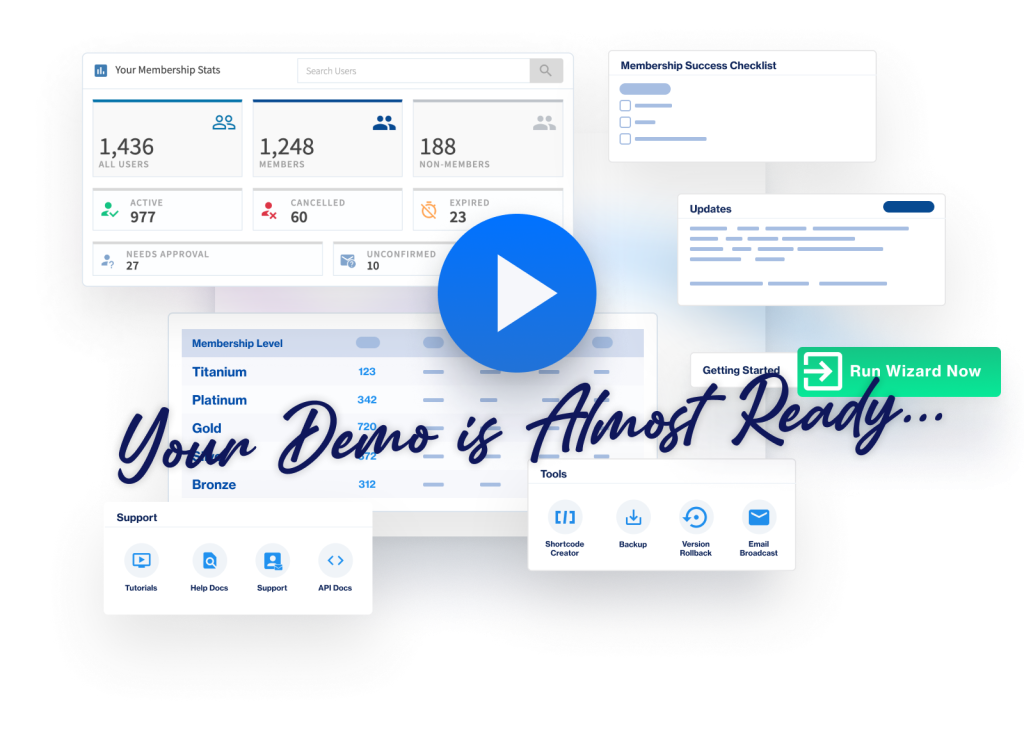A Facebook group can be a powerful tool for your business. Build a vibrant community among your members and you’ll ensure your brand stays at the forefront of their minds for future purchases.
Contents
Discover how to leverage Facebook groups to benefit your business.
Imagine a passionate runner, committed to enhancing her sprint speed. She becomes a member of a site exclusively for runners. However, she needs a space to discuss her techniques with others who share her interest.
Where can she find such a community of like-minded enthusiasts?
Consider a man who has an unusual fascination with tea cozies. He signs up for a crochet-themed membership site to hunt for the best deals on tea cozies. Yet, he lacks a community to share his unique passion with.
Just like the woman and man in these scenarios, your site's members can greatly benefit from being part of a Facebook group.
A Facebook group provides a platform for individuals to:
- connect,
- exchange feedback,
- discuss shared interests,
- gain access to exclusive information and deals,
- and even form friendships.
Being the administrator of a Facebook group for your business can be an excellent strategy to maintain customer engagement and ensure they keep returning to your site.
So get cozy and read on to find out how.

Facebook Group or Facebook Page: What’s The Difference?
What exactly is a Facebook group, and how does it differ from other social media platforms?
A Facebook group is a private space, meaning membership is granted access either through an invitation or a request.
Any member can post in a group, subject to the rules you establish.
Facebook groups is a great way to foster a community for two-way conversations for members of your membership site.
On most social media platforms, you're the one calling the shots. You control all the content. For example, on a Facebook page, you're responsible for creating regular posts. However, in a Facebook group, you act more as a facilitator rather than the primary voice.
It’s this dynamic that creates a sense of community, and deepens the relationship between business and consumer.
The Importance of Fostering Community: Why Does It Matter?
Building a sense of community around your business isn't merely a feel-good endeavor—it's a strategy with significant potential to enhance your revenue. Here are some of the key benefits:
Customer Engagement and Feedback
A Facebook group offers a platform for your customers to interact with your brand and each other.
It's an excellent place to get feedback, understand customer needs, and refine your products or services based on their suggestions.
Brand Loyalty and Community Development
By establishing a space where customers can engage and share, you're nurturing a sense of community. This can result in heightened brand loyalty, as customers feel more connected and committed to your brand.
Increased Visibility and Organic Reach
Every interaction or post by a member within the group amplifies the group's visibility within their network. This can stimulate organic growth and boost brand awareness.
Customer Support
The group can function as an extra customer support channel where customers can pose questions and receive assistance from both your team and other customers.
More Reasons to Form a Group
- A group can instill a sense of exclusivity among members. Offer updates, special deals, and bonus content solely for the members of your Facebook group.
- If your site's members create their own group, you may be unaware if a situation escalates or if a user has a negative experience. If you're the one in control, you have the power to screen posts and establish guidelines.
- Facebook provides insights and analytics for groups, which can aid in understanding your audience better and making data-informed decisions.
Guidelines for Managing a Facebook Group
While it's true that the community largely governs the page by contributing content and comments, you'll still need to do some work.
Here are a few pointers to remember when managing a Facebook group for your membership site.
1. Establish a set of rules to prevent discussions from veering too far off-topic. Consider prohibiting political debates and self-promotion, and definitely include a clause about hate speech and bullying.
2. Make sure you post occasionally and respond in supportive ways. Members appreciate seeing that the person in charge (that's you) values their input.
3. Choose a specific and clear name for your page so your members can easily find you.
4. Don’t overwhelm members with your own content. This isn't the place for self-promotion, so be cautious about posting excessive promotional content or being the primary poster.
5. Act fast to shut down negativity in your group. If the group becomes negative, a subscriber may link that experience with your site. If you spot a negative comment, kindly request the member to remove it or do it yourself.
Can Your Business Benefit From a Facebook Group?
If you manage a membership site, the answer is most definitely yes. Members, or subscribers, have made a commitment to your brand, and there’s a good chance your business is an excellent candidate for a successful Facebook group.
Here are a few examples of business types that can especially benefit from creating a Facebook group:
Service Providers
Whether you're a fitness trainer, a software consultant, or a hairdresser, you can leverage Facebook groups to share valuable content, respond to queries, and cultivate a community around your services.
This can help you position yourself as an authority in your field and attract new clientele.
Educational Institutions and Online Course Developers
Facebook groups offer a platform for students to discuss course content, ask questions, and offer peer support. As the course creator, it can also be a place for you to share supplementary resources and updates.
Online Retailers
Facebook groups can be a platform for sharing exclusive deals, announcing new product launches, and collecting customer feedback.
It's also an ideal space for customers to share their experiences and recommendations, which can stimulate sales.
Event Organizers and Community Developers
If you're coordinating webinars, local gatherings, or large-scale conferences, a Facebook group can be an effective way to maintain attendee engagement before, during, and after an event.
It's also a venue where participants can network and share their experiences.
Non-Governmental Organizations
Non-profits can use Facebook groups to foster a community of supporters, share updates about their initiatives, and organize fundraising events.
In essence, any business that stands to gain from…
- building and engaging with a community,
- offering customer support,
- collecting customer feedback,
- and enhancing brand loyalty
…can benefit from using Facebook groups.
Facebook Group Community Case Study: Popsy Clothing
For an exemplary illustration of a business that has harnessed the power of Facebook groups to its fullest, let's examine Popsy Clothing.

Popsy Clothing, a small UK-based business, specializes in women's vintage dresses featuring unique prints. Their Facebook group has grown to over 47,000 members and enjoys high levels of post engagement.
Let's delve into some of the reasons why the Popsy Facebook Group has achieved such success.
Promoting Respect & Support
The administrators strive to foster a positive and supportive atmosphere within the Facebook group. As a business that caters to women of all body shapes, they are especially vigilant in safeguarding the group from negativity.
One way they achieve this is by emphasizing positivity during the membership application process.
Prospective members must agree to a set of rules that include being “kind and respectful”, refraining from “hate speech or bullying”, and not posting “diet and medical advice”.
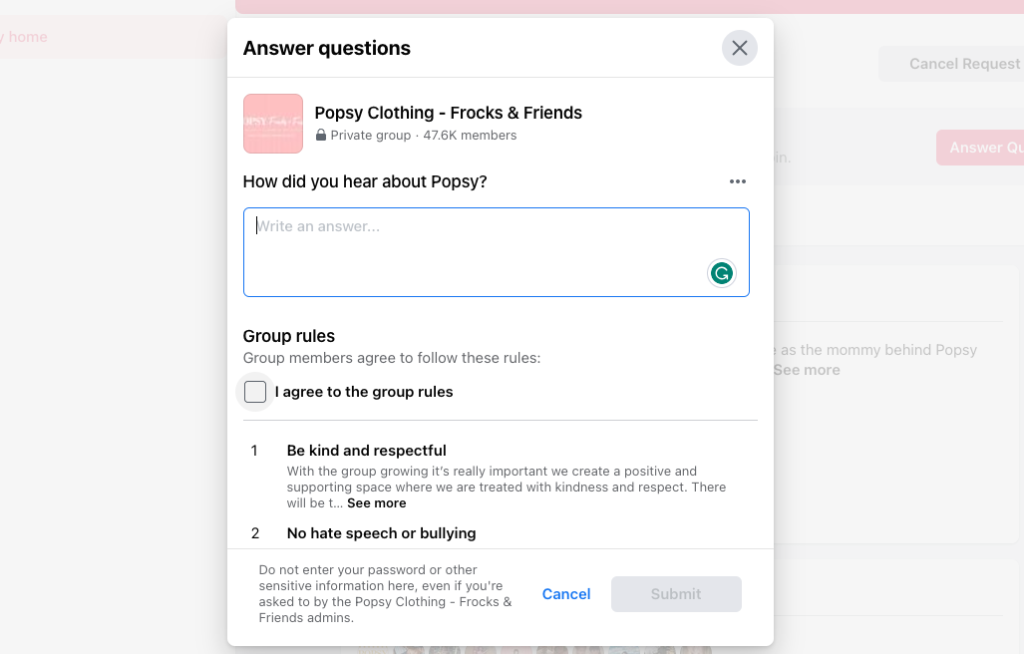
Cultivating Relationships Within the Community
Popsy also encourages members to engage in conversations unrelated to the brand, stating in its rules: “this is your space to make friends, support each other, and a place of positivity.”
This openness has led members to share and bond over personal matters.
In fact, the bond are so strong between Popsy Facebook group members that some have even independently organized in-person meet-ups through the group using Facebook events.
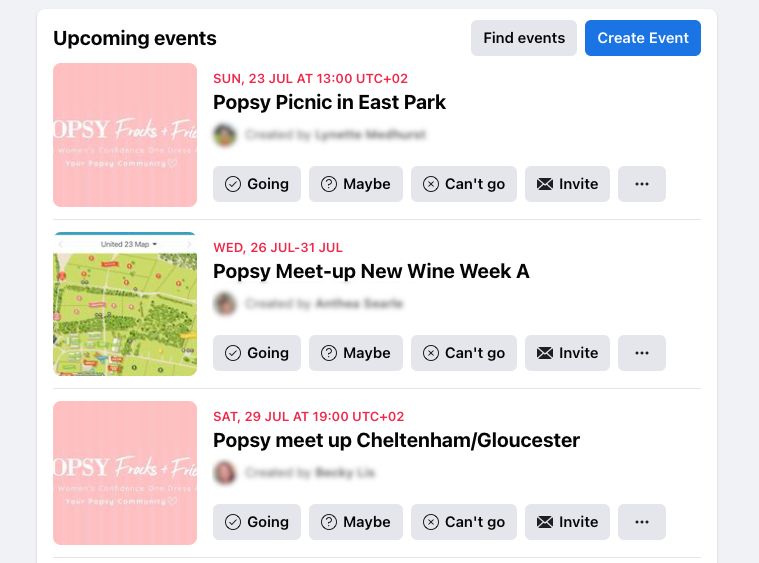
Exclusive Offers for Members
While Popsy regularly shares and promotes new releases, they take several steps to make the experience doesn’t feel like a hard sell.
For instance, new releases are often paired with limited-time discount codes exclusive to members. Members also receive behind-the-scenes insights into the inspiration behind each design and styling advice.

These graphics are visually appealing, engaging, and can be easily created using a user-friendly graphic design tool like Canva.
1:1 Communication
The personal involvement of the owner and designer, Cherish Reardon, in Popsy's content significantly enhances Popsy's narrative as a small, independent business.
Cherish models her designs, interacts personally with members, and shows genuine interest in their opinions.
For instance, Cherish recently appeared in a live video, offering members a sneak peek at her Christmas range design ideas. This was followed by a poll, asking members to vote on their favorite patterns.
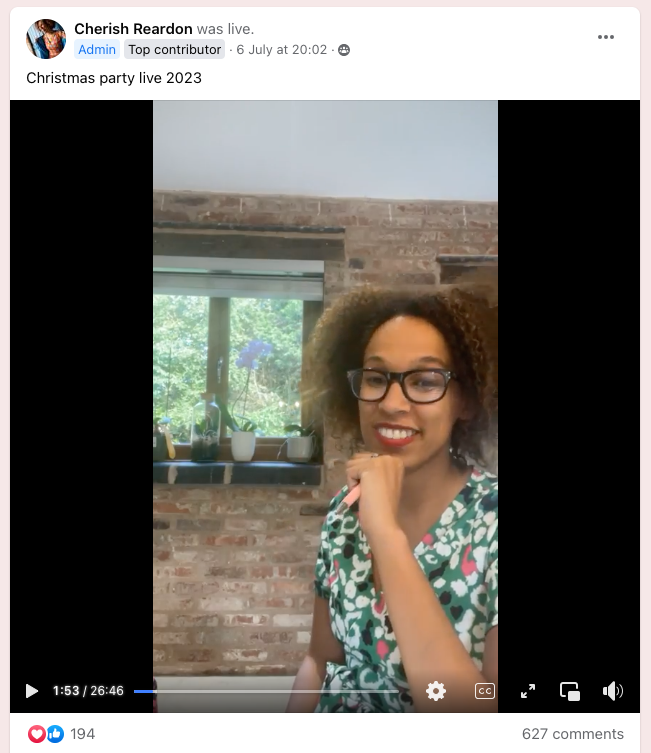
This approach makes Popsy members feel appreciated and involved in the brand's decision-making, undoubtedly fostering increased brand loyalty.
In Conclusion
Here are the key points we established in this article:
- Creating a Facebook group for your business fosters a sense of community, leading to more contented, loyal customers.
- Running a Facebook group isn't a passive task. Be an active participant and demonstrate genuine interest in the community.
- Promote positivity by implementing community rules and encouraging open communication.
- Cultivate a sense of collaboration by involving members in product-related decisions.
- Offer a VIP experience with insider news and exclusive deals.
Whether it's tea cozy owners discovering the quirkiest knits or runners achieving personal bests, everyone benefits from the support of others.
Your subscribers will appreciate the sense of community that a Facebook group brings, and they'll have you to thank for it. Along the way, you'll be enhancing brand loyalty, organic traffic, and brand visibility.

